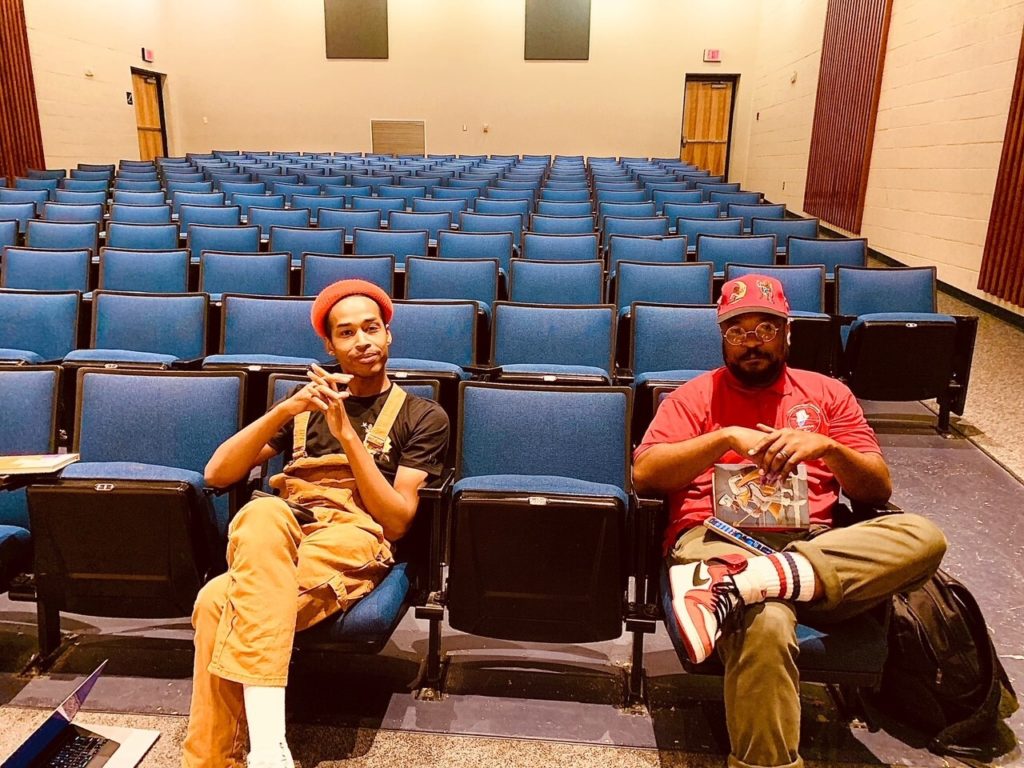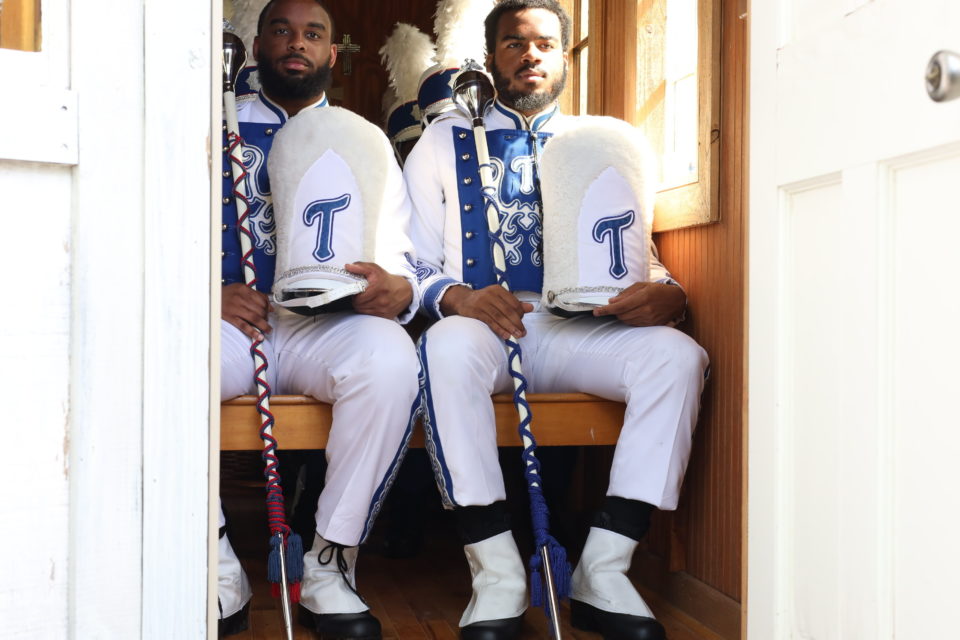Audio Transcript:
Host intro: The marching bands of Historically Black Colleges and Universities long ago established a reputation for putting on stunning shows at football games. Tennessee State University’s Aristocrat of bands was the first of them to appear on television in the ‘50s. And now it’s become the first to unite the traditions of HBCU bands and gospel music on a studio album. WNXP’s Jewly Hight visited TSU’s campus to find out how they pulled that off.
Hight: Larry Jenkins specializes in getting dynamic performances from the brass, woodwinds and drums on the field and in the stands.
Sir the Baptist, on the other hand, is a Grammy-nominated studio visionary.
But when Sir took interest in working with the Aristocrat of Bands a few years back, the two of them had a meeting that kinda sounds like a spin on an old joke: An assistant band director and a gospel producer walked into a Mexican restaurant…
Jenkins: I think I had the pollo encamisado. [laughs]
Jenkins still has a photo on his phone of the brainstorming he and Sir did over that meal.
There is a napkin with, you know, just a scribbling this weird map describing how we want to attack this artist in residency program and build an album out of it. And then these are things to teach to the kids, production, marketing, branding.
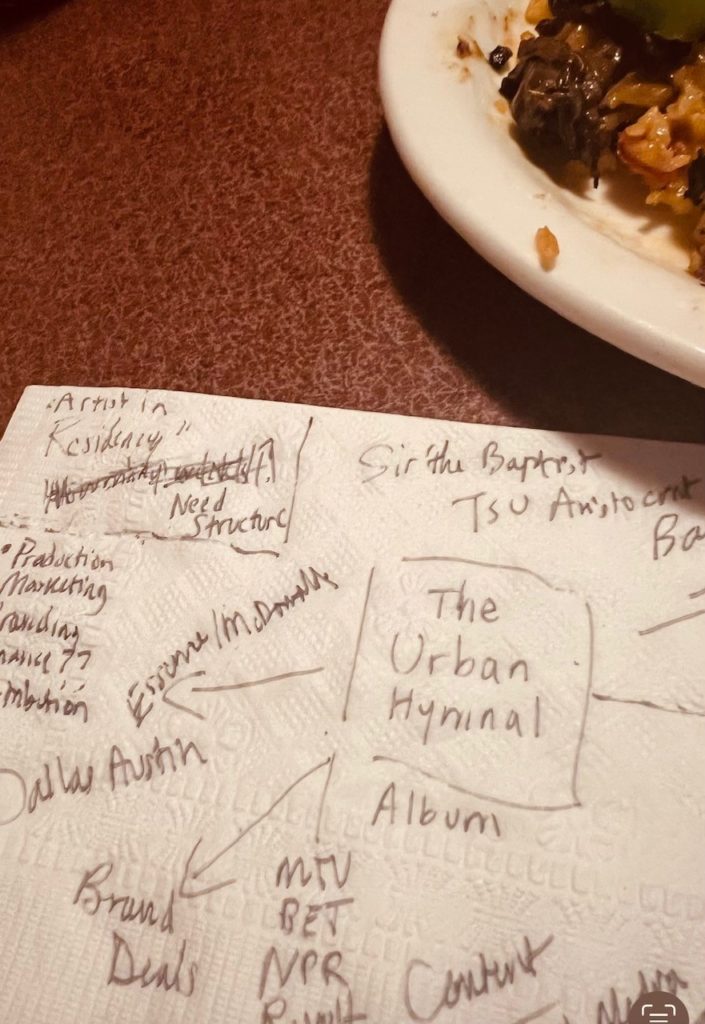
Sir doesn’t usually need to educate his collaborators. Gospel, hip-hop and pop stars have teams to handle their business. But it was worth it to him to be hands-on in every way with this album, The Urban Hymnal.
I think what makes it different, historic and important is that it’s a marching band doing gospel. And doing gospel roots can look spiritual, but also historic because you’re picking up the legacy, the songs that carry your ancestors from cotton fields to, you know, to where they are now
Gospel had a subtle influence on the AOB already. There’s a fight song that shares a melody with an old hymn, and some of the students have used their talents in church. But Sir made gospel the main event on this record—and made sure the school’s majorettes could dance to it.
There was really no template for a project like this. Sir and his collaborators transformed the TSU band room, with its high ceilings, lockers and semicircle of chairs, into a recording studio. They couldn’t just set up a microphone and hope it could handle the entire band at full blast.
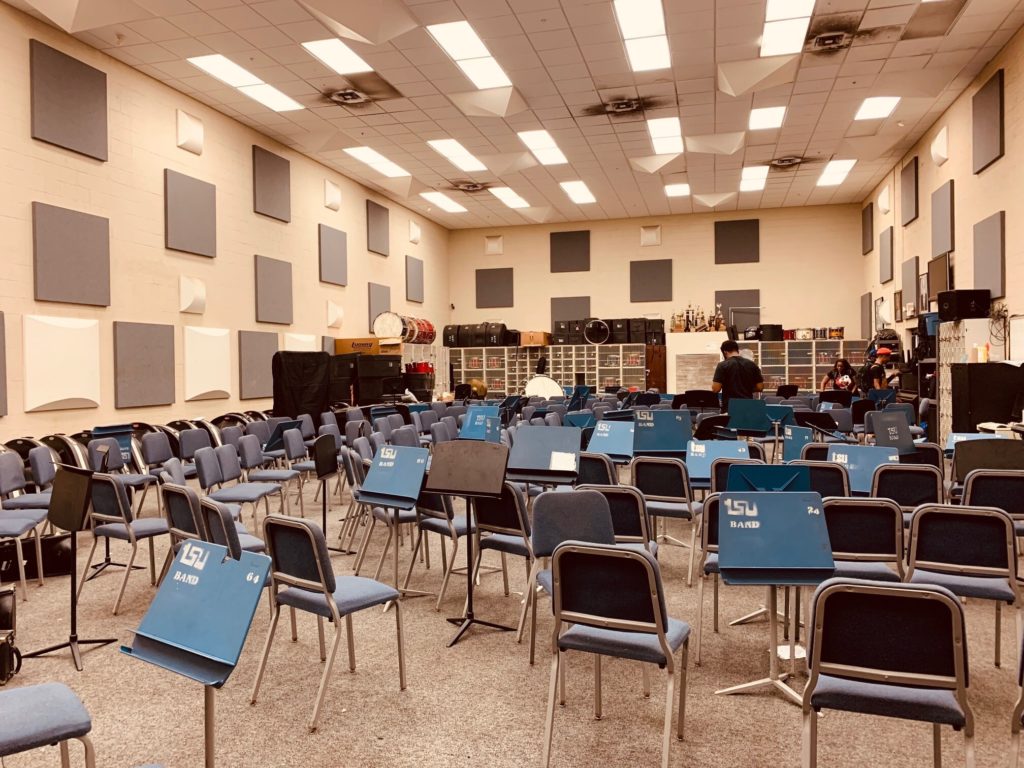
Jenkins picks up a music stand to demonstrate how Sir went section by section, mic-ing the musicians at intimate range.
Let’s say for this one, we want to catch some clarinet sound. He might take his mic here. The ones that are sitting here will face towards where the mic is. Bang, we get a take. He’ll stay here. He’ll do another one. He might catch it like this and have the mic over this way, you know what I mean?
The professional recording process was new to the students.
They’re like, okay, we’re not done. We have to do this. How many more times? You know, just learning what it’s like to be in a studio setting Because essentially what the band is doing in this case, they’re functioning literally as an artists.
They’re also working toward degrees.
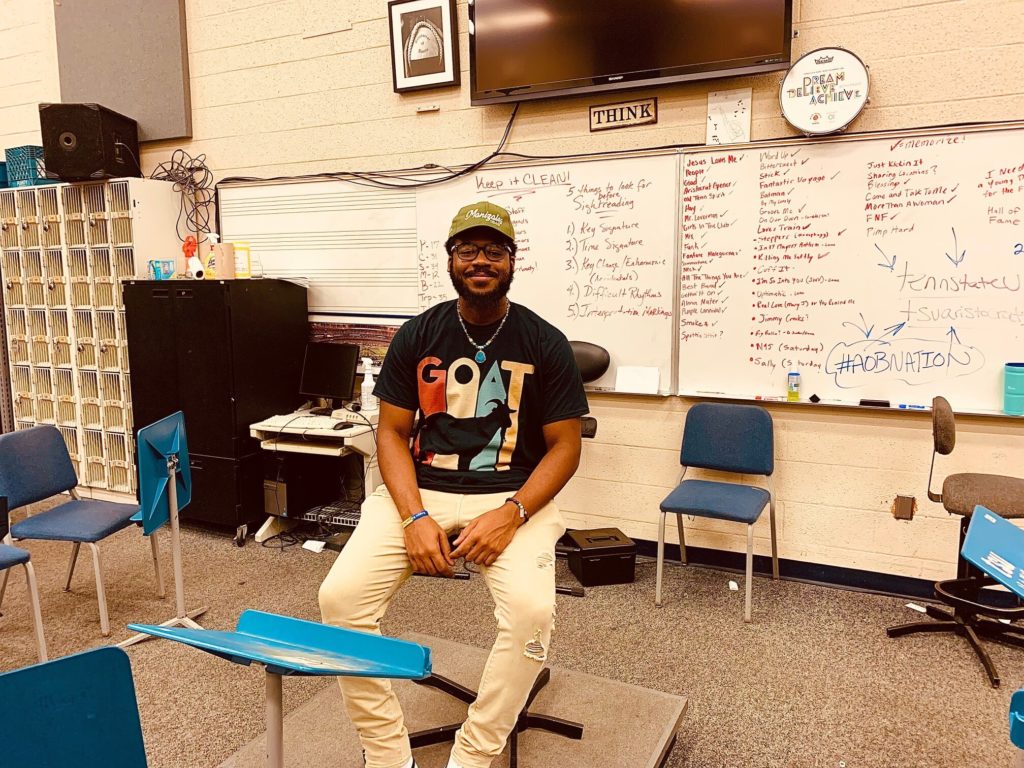
I am Curtis Olawumi. I’m a senior, music major from Atlanta, Georgia. Trumpet player. I currently serve as drum major number two
Working on this project, the process has been amazing, all the late nights and early mornings. It just feels so real.
That’s Olawumi’s solo [during “Fly”]: I never would’ve expect it to be featured on the album. You know, I was just like, “Okay, well, you need this part played? I got you, I got you. You know, just being of service. [laughs]
Olawumi and his peers had lots of crucial parts to master [rehearsal tape]
It was up to Sir the Baptist to preserve the distinctive, potent AOB sound and blend it with current electronic textures
Over drums, the actual marching band drums, I’m putting drums, that would give us the hip hop vibe. So… [plays beat] Right? So that’s that’s just the track itself… which is why I wanted to pull up the guts so that you can see it, is just giving that balance. There’s even a DJ moment right in this. [plays more of track, crossfade into final master version] Kierra, who is arguably the next gospel queen, is just a good friend of mine. And I had her do it, and I sent an engineer to her house to record it.
That fiery, vistuosic vocalist? That’s gospel luminary Kierra Sheard, who got the mission and was only too happy to sing an update of a hymn she’s known her entire life.
I love that I’m a Black woman. I love where I come from. I love my culture. I love my history. I love how so many kings and queens have blazed the trail for me, whether it’s in education, business, my freedom, you know, whatever it is. I am a huge fan of HBCUs. I’ve had family members who have gone and they left HBCUs with a different kind of confidence,
When Sir the Baptist and his Tennessee State partners enlisted what he estimates to be a thousand people to contribute to this album, they were investing in the future.
A hundred years from now, hopefully. There’s a kid in a band room. With his friend. Working on music and if they need a model we set it up to where they can say, okay, you know what? this is how you do it.
